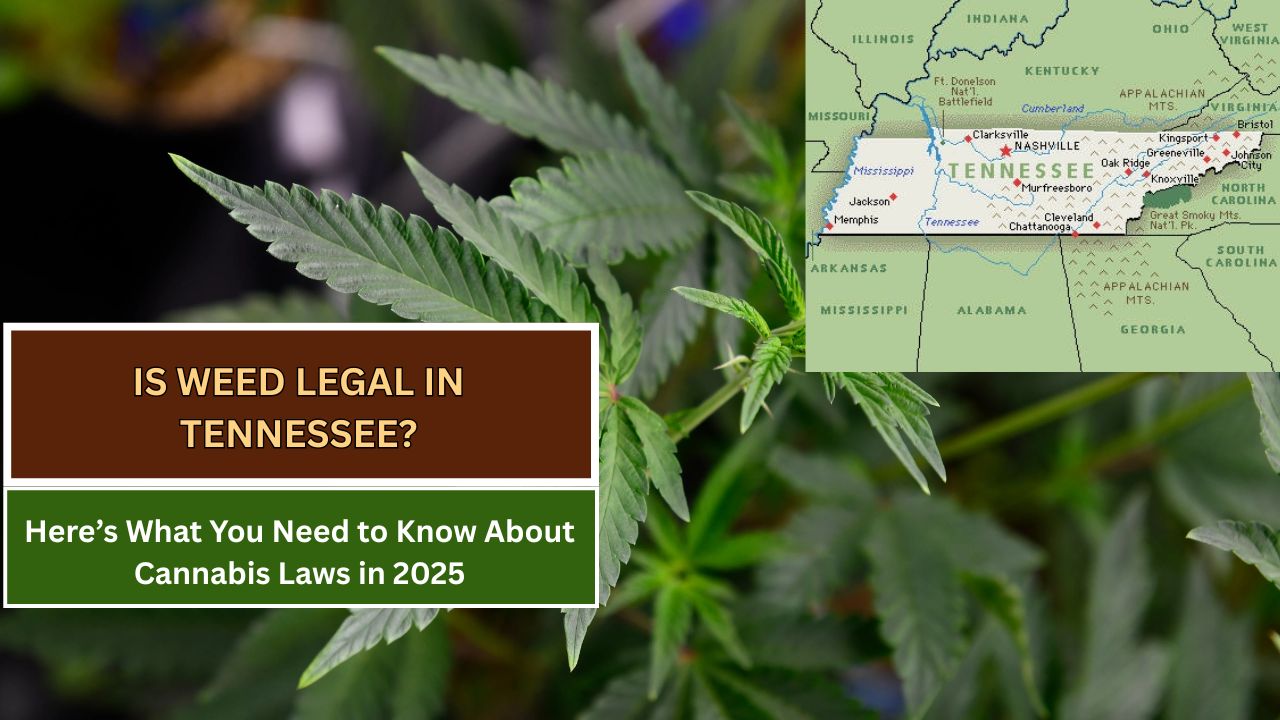As cannabis legalization sweeps across the United States, Tennessee remains among the most restrictive states when it comes to marijuana use. In 2025, both recreational and most medical marijuana continue to be illegal in the Volunteer State, despite growing public support and repeated legislative attempts to loosen regulations.
Recreational Marijuana: Still a Criminal Offense
Recreational use of cannabis remains entirely prohibited under Tennessee law. Possession of even small amounts can result in serious legal consequences. For example, individuals caught with less than half an ounce (approximately 14.2 grams) of marijuana may face a misdemeanor charge, up to one year in jail, and a fine of $250.
Possession of larger quantities or evidence of intent to distribute escalates the offense to a felony, carrying harsher penalties. Tennessee does not offer a general decriminalization policy, meaning that even first-time offenders are subject to arrest and prosecution.
Medical Marijuana: A Narrow Exception for Low-THC CBD
Tennessee’s approach to medical marijuana is also limited. The state allows only the use of low-THC cannabidiol (CBD) oil—defined as oil containing less than 0.9% tetrahydrocannabinol (THC). This is only available to patients with qualifying conditions such as intractable seizures, Parkinson’s disease, multiple sclerosis, or cancer.
However, Tennessee does not have a medical marijuana dispensary infrastructure. Patients must obtain CBD oil legally from other states and carry proof of purchase. There is no in-state provision for cultivation, processing, or regulated distribution.
Legislative Efforts in 2025: No Progress Made
In the 2025 legislative session, several bills aimed at expanding marijuana access were introduced, yet none advanced beyond committee hearings.
One notable bill—Senate Bill 489—proposed establishing a full medical cannabis program. Meanwhile, House Bill 981 aimed to decriminalize the possession of under one ounce of marijuana and up to five plants for personal use. Both measures failed to gain momentum.
Lawmakers cited concerns about federal scheduling, substance abuse, and lack of regulatory infrastructure as reasons for the continued rejection of reform proposals.
Public Opinion Favors Reform
Despite legislative stagnation, public sentiment is moving in the opposite direction. A 2024 poll by Vanderbilt University revealed that 60% of Tennessee voters support the legalization of recreational marijuana. This marks a notable increase in support compared to previous years, particularly among younger and urban demographics.
As neighboring states like Virginia and Missouri move forward with both medical and recreational cannabis frameworks, pressure on Tennessee lawmakers is likely to increase.
Hemp-Derived Cannabinoids Also Under Fire
Even Tennessee’s hemp market has come under scrutiny in 2025. In May, Governor Bill Lee signed legislation banning the sale of hemp-derived cannabinoids—including THCa, THCv, Delta-8, and Delta-10—if the product exceeds 0.3% THC by weight. The new law also prohibits online sales and shifts oversight to the Tennessee Alcoholic Beverage Commission.
This crackdown has disrupted businesses that relied on selling hemp-based alternatives to marijuana, especially in the absence of full cannabis legalization.
Looking Ahead: What Could Change?
While the current laws remain strict, the combination of shifting public opinion and national developments could eventually influence Tennessee’s stance. The Biden Administration’s move to potentially reschedule marijuana at the federal level may open the door for future state-level reforms.
Advocacy groups continue to push for change, including medical access expansion and basic decriminalization. But for now, Tennessee residents and visitors should remain aware: possession of marijuana is illegal, and penalties can be severe.
Key Takeaways:
- Recreational marijuana is illegal in all forms in Tennessee.
- Only low-THC CBD oil (under 0.9% THC) is permitted for limited medical conditions.
- No in-state sales or dispensaries are allowed.
- Recent legislative efforts to legalize or decriminalize marijuana have failed in 2025.
- Hemp-derived THC products face new restrictions under laws signed in May 2025.
This article has been carefully fact-checked by our editorial team to ensure accuracy and eliminate any misleading information. We are committed to maintaining the highest standards of integrity in our content.

Outside of work, he enjoys playing chess, following cricket, and writing short stories. His commitment to integrity and in-depth analysis strengthens OTE News’ mission of providing trustworthy journalism.




